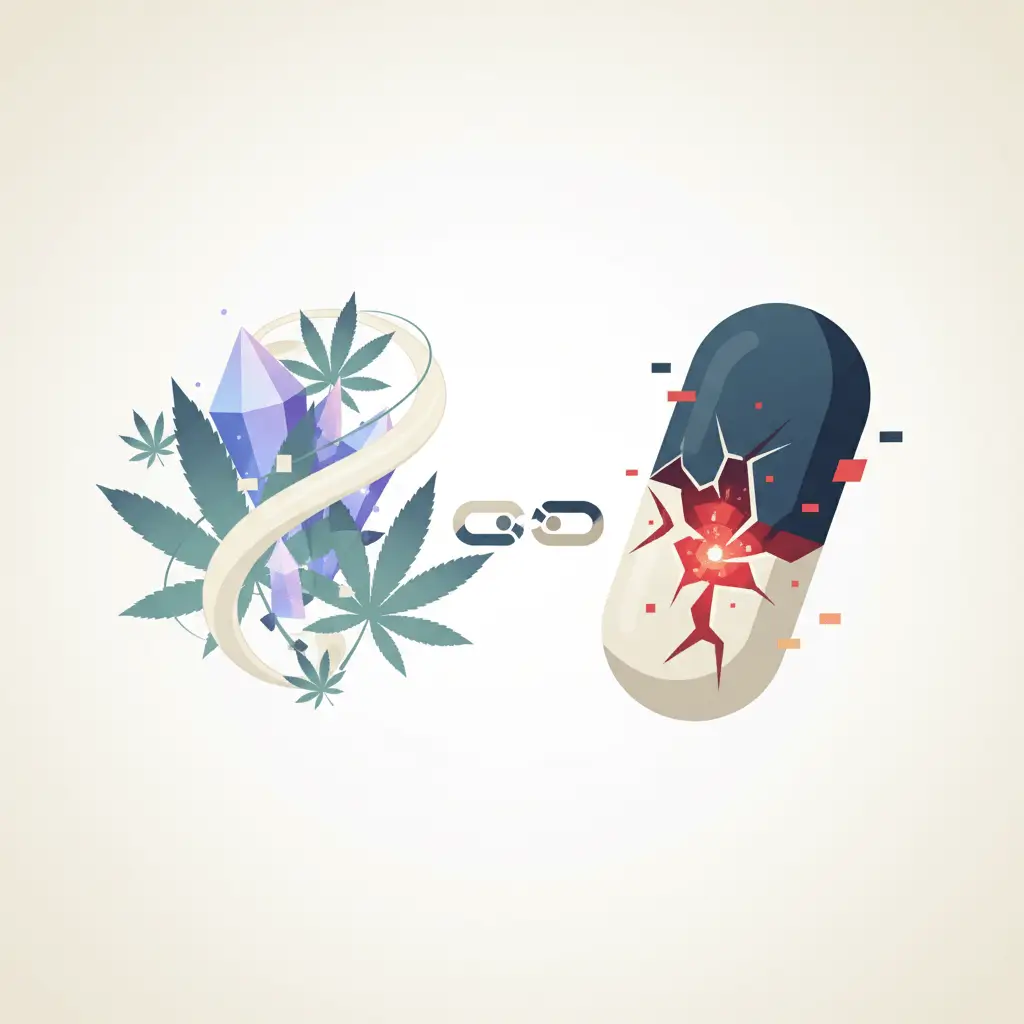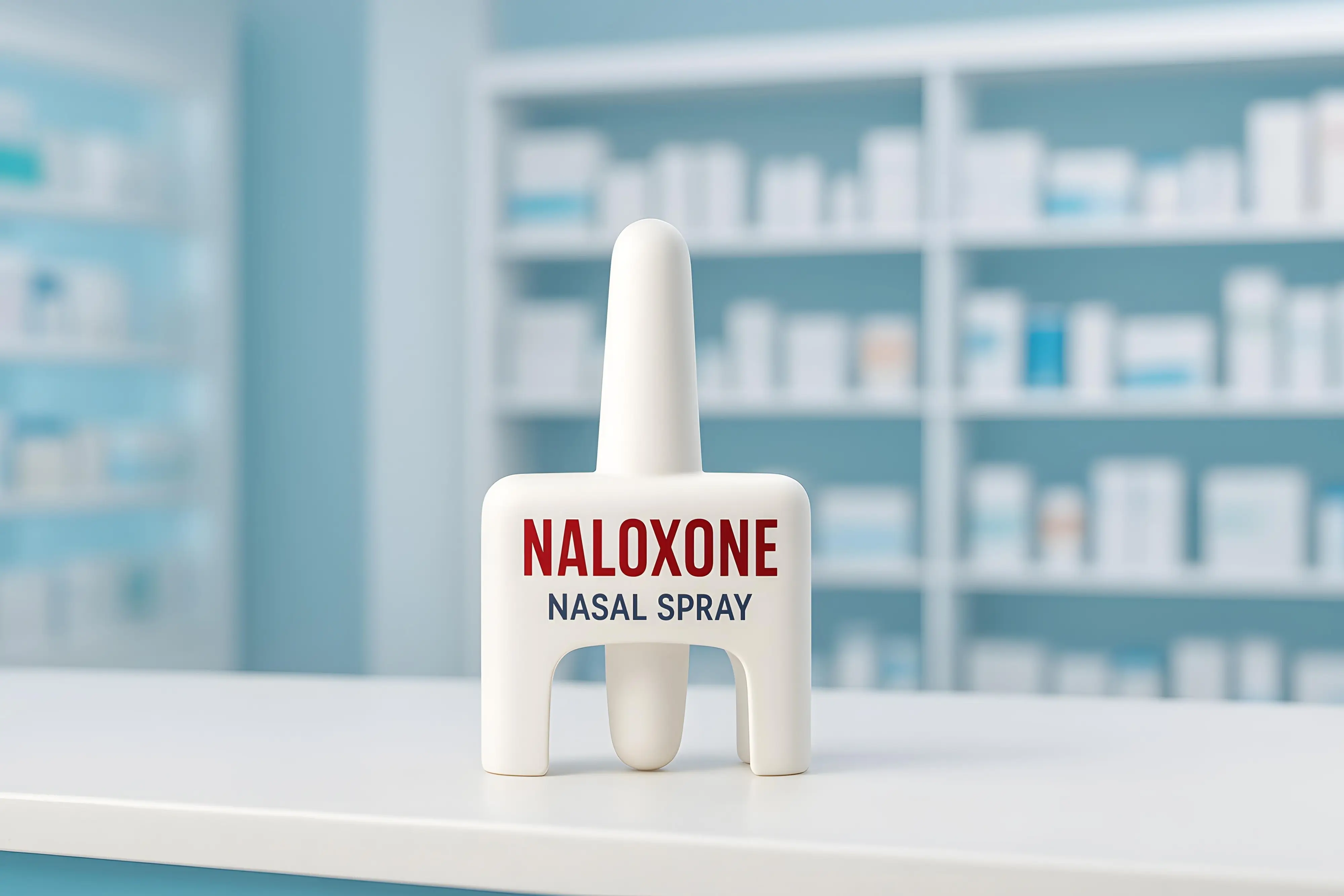Understanding Addiction
In order to comprehend the complexities of addiction and the journey towards long-term sobriety, it is essential to gain an understanding of the factors that contribute to addiction. This section will explore the genetic and environmental influences on addiction.

Genetic Factors in Addiction
Genetics plays a significant role in addiction vulnerability, as studies have indicated that addiction has a genetic component that can be passed from parent to child through genes. Individuals with a family history of addiction may be more susceptible to developing an addiction themselves, underscoring the importance of understanding one's genetic background in addiction recovery [1].
While genetic factors can contribute to addiction, it's crucial to note that they do not guarantee addiction will occur. Genetic predisposition merely increases the risk, making it imperative to focus on preventative measures, early intervention, and comprehensive substance use rehab programs to address potential genetic vulnerabilities.
Environmental Influences on Addiction
Environmental factors also play a significant role in addiction development and recovery. Exposure to drugs or alcohol, trauma, stress, and peer influences can all contribute to the development of addiction. Additionally, racial and socioeconomic disparities can complicate the recovery process, highlighting the need for addressing environmental factors and systemic inequities.
Understanding the environmental influences on addiction allows for a more comprehensive approach to recovery. By addressing underlying trauma, providing trauma-informed care, and implementing holistic treatment approaches that consider the individual's unique circumstances, drug rehab centers can better support individuals on their journey towards long-term sobriety.
By acknowledging the genetic and environmental influences on addiction, individuals and healthcare professionals can tailor treatment plans and interventions to address the specific needs of each person in recovery. This comprehensive understanding of addiction sets the foundation for effective recovery programs and supports the pursuit of long-term sobriety.
Psychological Aspects of Addiction
Understanding the psychological aspects of addiction is crucial in comprehending its complexity and addressing the challenges faced during the recovery process. Two important psychological factors to consider are the impact of mental health conditions and coping mechanisms.
Impact of Mental Health Conditions
Mental health conditions and addiction often coexist and can mutually influence each other. Individuals with mental health disorders may be more vulnerable to developing addiction, and substance abuse can exacerbate existing mental health symptoms. This connection underscores the importance of integrated treatment approaches that address both addiction and mental health concerns.
Common co-occurring mental health disorders include anxiety, depression, bipolar disorder, and post-traumatic stress disorder (PTSD). These conditions can significantly impact a person's well-being and make the recovery journey more challenging. Integrated treatment models, such as trauma-informed care and therapy that focuses on dual diagnosis, are essential for effectively addressing these co-occurring disorders.
Coping Mechanisms and Addiction
Coping mechanisms play a significant role in addiction vulnerability and recovery obstacles. Individuals may turn to substances as a way to cope with stress, trauma, emotional pain, or other underlying issues. Unfortunately, relying on substances as a coping mechanism can perpetuate the cycle of addiction and hinder long-term recovery.
Developing healthy coping mechanisms is a crucial aspect of the recovery process. By learning healthier ways to manage stress, emotions, and triggers, individuals can reduce their reliance on substances. This may involve therapy, support groups, and the development of positive habits and coping strategies.
In addition to professional support, support systems that include family, friends, and peers who understand the challenges of addiction can provide invaluable assistance in cultivating healthier coping mechanisms. These support networks can offer guidance, encouragement, and accountability throughout the recovery journey.
Understanding the impact of mental health conditions and the role of coping mechanisms is vital for individuals seeking long-term sobriety. A comprehensive approach to addiction recovery should address both the addiction and any underlying mental health concerns. By integrating specialized treatment modalities and fostering healthy coping mechanisms, individuals can enhance their chances of achieving lasting recovery.
Challenges in Recovery
Recovering from addiction is a challenging process that requires dedication, perseverance, and support. Along the journey to long-term sobriety, individuals may encounter various challenges. Two significant challenges in recovery include the risk of relapse and the importance of social support.
Risk of Relapse
One of the major challenges in addiction recovery is the risk of relapse. It's important to recognize that relapse should be viewed as an opportunity for learning and growth rather than a sign of failure. Providers have observed that relapse is a process rather than an event, with stages including emotional relapse, mental relapse, and physical relapse. Early recognition of signs and symptoms in each stage allows for preventative interventions.
To minimize the risk of relapse, individuals in recovery should develop effective coping strategies, identify and address triggers, and practice self-care. It's essential to have realistic expectations and understand that recovery is a lifelong process. Seeking professional help, such as attending drug rehab centers and participating in aftercare programs, can provide the necessary guidance and support to navigate the challenges of recovery.
Importance of Social Support
Social support plays a crucial role in the recovery journey. Having a strong support system can provide individuals in recovery with encouragement, guidance, and understanding. It creates a network of people who can relate to their struggles and offer empathy. Studies have shown that social support, affiliation with 12-step groups, and the negative consequences of substance use are beneficial factors for long-term recovery.
Being surrounded by individuals who understand and support their recovery goals can provide motivation and strength to overcome challenges. Support can come from various sources, including family members, friends, support groups, and therapists. Engaging in support groups such as Alcoholics Anonymous or Narcotics Anonymous can provide a sense of community and guidance on the path to long-term sobriety.
By recognizing the challenges of recovery and actively seeking support, individuals can enhance their chances of long-term sobriety. It's important to remember that recovery is a unique and personal journey, and the road may not always be smooth. With the right mindset, coping mechanisms, and support, individuals can navigate the challenges, stay committed to their recovery goals, and build a fulfilling life free from addiction.
Long-Term Sobriety Factors
Achieving and maintaining long-term sobriety from addiction requires a combination of factors. In this section, we will explore two key elements that significantly contribute to long-term recovery: the role of social support and involvement in support groups.
Role of Social Support
Social support plays a crucial role in the journey to long-term sobriety. Having a network of people who understand the challenges of addiction and offer encouragement, guidance, and understanding is invaluable for individuals in recovery. Social support provides a sense of belonging and helps individuals feel less alone in their recovery journey.
Research has shown that social and community support are key factors in establishing and maintaining long-term recovery from substance abuse. Individuals who have a strong support system are more likely to stay committed to their recovery goals and overcome challenges.
The positive impact of social support can be attributed to several factors. It provides motivation and strength during difficult times, helps individuals stay accountable, and offers a safe space for sharing experiences and emotions. Supportive relationships can also provide practical assistance, such as helping to identify triggers and developing coping strategies.
Involvement in Support Groups
In addition to social support, involvement in support groups is highly beneficial for individuals seeking long-term sobriety. Support groups, such as 12-step fellowships, provide a structured and supportive environment where individuals can connect with others who have similar experiences and goals.
Research has shown that individuals actively affiliated with 12-step groups are more likely to achieve and maintain abstinence over long periods. These groups offer a range of resources and tools for recovery, including regular meetings, sponsorship, and a supportive community. Being part of a support group can provide a sense of belonging, accountability, and guidance.
Participation in support groups can also help individuals develop a sense of identity as someone in recovery and provide a platform for learning from others' experiences. It creates opportunities for sharing struggles, successes, and strategies for maintaining sobriety. The collective wisdom and support within these groups can be empowering and contribute to long-term recovery.
In conclusion, social support and involvement in support groups are vital factors in achieving and sustaining long-term sobriety from addiction. These elements provide a sense of belonging, motivation, accountability, and practical assistance. Whether through close relationships with friends and family or active participation in support groups, building a strong support network is crucial for individuals on the path to long-term recovery.
Strategies for Long-Term Recovery
Achieving and maintaining long-term sobriety requires a combination of strategies that address both the emotional and social aspects of addiction recovery. By focusing on emotional sobriety and building a strong support system through therapy and support groups, individuals can enhance their chances of sustained recovery.
Emotional Sobriety
Emotional sobriety is a fundamental foundation of long-term recovery. It involves the ability to regulate negative feelings that may lead to discomfort and cravings, often resulting in relapse. Achieving emotional sobriety requires a long-term commitment to developing healthier ways of thinking, coping skills, and problem-solving strategies, along with constant vigilance and mindfulness.
To cultivate emotional sobriety, individuals in recovery can benefit from engaging in therapy that helps them identify and address underlying emotional issues. Therapies such as cognitive-behavioral therapy (CBT) and dialectical behavior therapy (DBT) can provide valuable tools to manage emotions, build resilience, and develop healthier responses to triggers. Additionally, practicing mindfulness techniques, such as meditation and deep breathing exercises, can help individuals become more aware of their emotions and learn to respond to them in a healthy manner.
Support Systems and Therapy
Staying actively involved in a support system is crucial for sustaining short-term sobriety and developing skills and strategies essential for long-term positive outcomes in recovery. Engaging in family, individual, and group therapy can provide a supportive environment where individuals can work through complex issues related to addiction and develop effective coping mechanisms [4].
Support groups, such as 12-Step groups, offer a sober and supportive social network that can significantly contribute to long-term abstinence outcomes. Research has shown that attendance at 12-Step groups is associated with increased treatment engagement and improved overall substance use disorder outcomes.
In addition to support groups, individual therapy provides a space for individuals to explore their emotions, address underlying issues, and develop personalized strategies for maintaining sobriety. Family therapy can also play a vital role in long-term recovery by improving familial support and reducing the risk of recurrence of substance use [5].
By actively participating in therapy and support groups, individuals in recovery can build a strong support system that provides encouragement, guidance, and accountability. These resources empower individuals to navigate the challenges of long-term recovery, develop resilience, and sustain their sobriety.
Remember, relapse doesn't mark the end of successful recovery. In fact, those who relapse and re-enter treatment often do so with a new perspective that can help them re-evaluate their goals, strategies, environment, and relationships related to recovery. Applying lessons learned after a relapse can strengthen resolve and pave the way to successful, long-term sobriety.
In summary, emotional sobriety and support systems through therapy and support groups are crucial strategies for achieving and maintaining long-term recovery. By prioritizing emotional well-being and actively engaging in supportive communities, individuals can enhance their chances of sustained sobriety and a healthier, fulfilling life.
Treatment Options for Recovery
When it comes to achieving long-term sobriety, there are various treatment options available to individuals struggling with addiction. These options aim to address the physical, psychological, and emotional aspects of addiction and provide the necessary support for lasting recovery. Two common treatment approaches are medication-assisted treatment and counseling.
Medication-Assisted Treatment
Medication-assisted treatment (MAT) involves the use of medications to help manage withdrawal symptoms and cravings associated with substance use disorders. One example of MAT is the use of Suboxone, a prescription medication that contains buprenorphine and naloxone. Suboxone can help reduce withdrawal symptoms and cravings for opioids, allowing individuals to focus on their recovery journey.
The duration of a Suboxone treatment program can vary depending on individual needs and goals. Generally, the program can last several months to a year or more. The treatment plan is personalized to each client and can be adjusted as needed to support ongoing recovery.
Another medication used in addiction treatment is Ketamine. While Ketamine is primarily known for its use in anesthesia, it has shown promise in treating mental health conditions such as depression, PTSD, anxiety, and addiction. Ketamine treatment involves low doses of the drug, which can have mild psychedelic and tranquilizing effects. These effects typically last for 1 to 2 hours, but the antidepressant and beneficial effects on mental health can persist for a longer duration.
Role of Counseling in Recovery
Counseling plays a crucial role in addiction recovery, helping individuals address the psychological and emotional aspects of addiction. Therapeutic interventions, such as individual counseling, group therapy, and family therapy, provide a supportive and safe space for individuals to explore the underlying causes of their addiction, develop coping strategies, and learn healthier ways of managing stress and emotions.
Counseling can take various forms, including cognitive-behavioral therapy (CBT), dialectical behavior therapy (DBT), and motivational interviewing. These approaches aim to empower individuals, enhance their self-awareness, and promote positive behavioral changes. Through counseling, individuals can gain valuable insights, build resilience, and develop the skills necessary to maintain long-term sobriety.
In addiction recovery, the combination of medication-assisted treatment and counseling can be highly effective. These approaches work synergistically to address both the physical and psychological aspects of addiction, providing individuals with comprehensive support on their journey towards lasting sobriety.
It's important to note that treatment options may vary depending on individual needs and the specific substance being addressed. Seeking professional guidance from drug rehab centers or addiction treatment facilities can help individuals determine the most suitable treatment approach for their unique circumstances. Additionally, aftercare planning and ongoing support are crucial elements of long-term recovery, helping individuals maintain their sobriety beyond the initial treatment phase.
References
[1]: https://www.newhorizonscentersoh.org
[2]: https://www.ncbi.nlm.nih.gov/books
[3]: https://www.ncbi.nlm.nih.gov/pmc
[4]: https://www.safetynetrecovery.com













